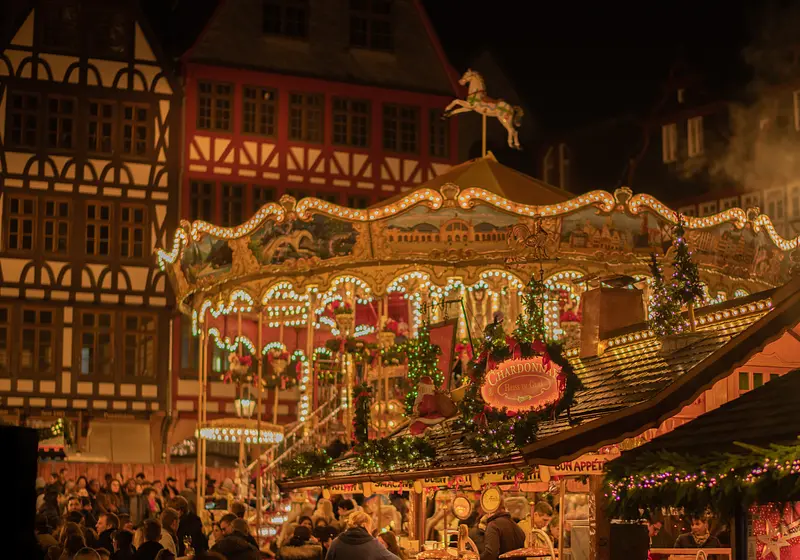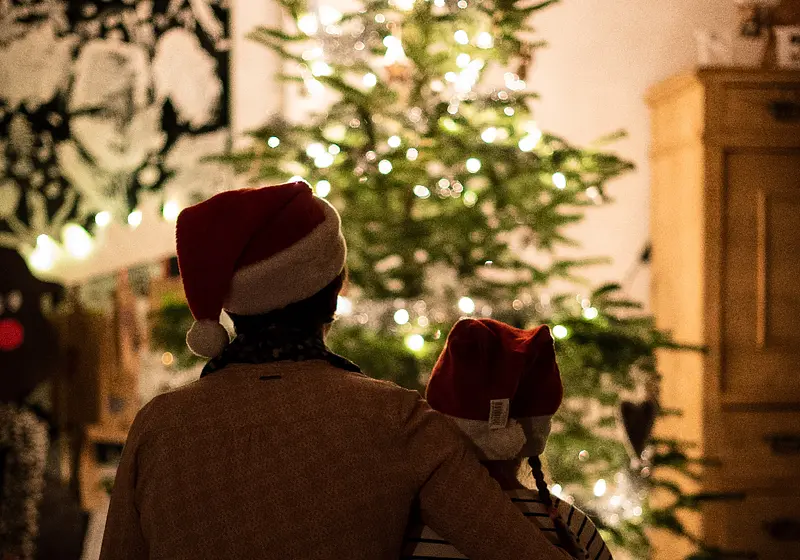Christmas, a time of enchantment and warmth, arrives annually, infusing the winter season with a spirited magic that charms everyone within its reach. The air carries the unmistakable aroma of freshly baked holiday cookies and cinnamon-spiced treats. The glow of Christmas lights transforms mundane neighborhoods into a world of wonder. The beautiful trees adorned with sparkling ornaments enchant the hearts of both Christians and non-Christians alike.
In today's interconnected world, Christmas has evolved into a holiday celebrated not only by Christians and Catholics but also by various other faiths and cultures. The secularization of this celebration has transcended religious boundaries to become a unifying observance of joy, togetherness, and the spirit of giving.
Christmas's Evolution Over The Centuries
Since the 3rd century CE, this wondrous holiday has celebrated the anniversary of the birth of Jesus Christ, which Christians also recognize as the day of his incarnation. Essentially, December 25th is marked as the time when God became human in the form of Jesus Christ. Christians annually honor the love, hope, and triumph Jesus has shown them by returning to life. Their immense gratitude for God's devotion is a cause for a commemoration of his goodwill.
This religious meaning has been embedded into Christmas's core, where it will remain for centuries to come. These roots are firmly established by the traditions that have evolved over time, preserving and honoring the religious aspects of the celebration.
Yet, the modern-day observance of Christmas has also evolved into a multifaceted celebration that traverses past purely religious barriers. While its religious origins persist as a fundamental part of the holiday, Christmas has expanded into a broader cultural and social celebration, embracing diverse expressions and interpretations beyond the confines of any single faith.
Before the 19th century, Christians celebrated Christmas exclusively at public gatherings, like sermons; however, soon enough, families began developing their unique ways of reveling this day. New customs contributed immensely to this progression, with many adopting activities that have developed into traditions, like putting up a Christmas tree and giving gifts to your loved ones. After World War II, Christmas faced even more transformations by becoming a significant commercial holiday.
An increasing number of stores featured Christmas decorations and music, and radio and television programs presented Christmas-themed episodes as well. With a capitalist culture on the rise, people also began emphasizing gift exchange, sending Christmas cards and presents to their friends and family. Eventually, the focus steered away from solely religion and transformed into a celebration that could bring happiness into everyone's lives.
Christmas's progression into a holiday with less religious connotations is highlighted in the staggering number of non-Christians who celebrate. A 2013 Pew Research Center survey revealed that 81% of non-Christians and 87% of religiously unaffiliated Americans cherish Christmas. A 2012 survey performed by Pew Research illustrates that 76% of Asian-American Buddhists and 73% of Hindus also partake in the festivities. Because of the magical elements of this merry season, including the opportunity to bring people closer together, this holiday has widened its horizons to allow everyone to engage in the yearly traditions.
The holiday now resonates with a wide spectrum of individuals, regardless of their religious affiliations, as it encompasses themes of love, generosity, togetherness, and peace that resonate universally. It has become a time for people of various backgrounds to come together, exchange gifts, partake in festive traditions, and share the delights that characterize the season.

Image Credit: Matthias Cooper from Pexels
Secular Christmas Festivities
Although going to church on Christmas is a staple for many families, there are also a multitude of non-religious ways to celebrate this holiday:
- Decorating: The act of decorating for Christmas has become an integral part of the festivities. From adorning houses with colorful lights, reindeer, and Santas to creating a festive atmosphere inside, decorations foster a warm, inviting, joyous environment not limited by religious connotations. As a result, many people of various cultural backgrounds and religious beliefs have adopted the tradition of embellishing their own Christmas tree. For instance, 1 in 3 Jewish Americans own this token of cheer.
- Holiday Baking: Baking holiday treats is a beloved tradition, filling homes with delightful goodies. Families often bake traditional favorites while trying out new recipes, sometimes sharing these treats as gifts with friends and neighbors.
- Singing Christmas Carols: Secular Christmas carols, such as "Jingle Bells," and "Let it Snow," among other favorites, are sung joyously during the season. These songs, devoid of religious themes, serve as a means of celebration and entertainment at gatherings, parties, and in the community.
- Gift-Giving: Gift-giving is a widely embraced tradition during Christmas, symbolizing love, appreciation, and generosity. Religious beliefs do not bind this tradition and often involve exchanging thoughtful presents, including non-traditional or humorous gifts in some families. Awarding a loved one with a gift allows individuals to communicate their feelings and gratitude for that person.
- Watching Christmas Movies and Attending Performances: Watching Christmas-themed movies is an adored pastime for families who gather to enjoy classics like "Home Alone," "Elf," and other films that often emphasize themes of love, family, and the spirit of giving. These movies serve as a source of entertainment and evoke a sense of nostalgia and warmth. Cultural performances, such as the ballet "The Nutcracker," have also become integral to secular Christmas celebrations. Attendees, irrespective of religious beliefs, appreciate the artistry and beauty of such performances during the holiday season.
- Family Gatherings: Family reunions during the Christmas season are cherished moments. They are an opportunity for loved ones to come together, share stories, enjoy elaborate meals, play games, and partake in the joy of being with one another.

Image Credit: Nicole Michalou from Pexels
Christmas has become a unifying force linking individuals and families worldwide. It is a time for reflection, gratitude, and spreading kindness without borders. As we continue to celebrate the holiday season, it's evident that the nature of Christmas, rooted in compassion, generosity, and communal spirit, unites us all.
Whether Christian or non-Christian, the joy of coming together, sharing moments of affection, and embracing the festive traditions embodies the true essence of the season and showcases the beauty of camaraderie amidst diversity. In its secular form, embracing Christmas is a testament to the power of shared traditions that connect and bond us all together.












